
Vusamazulu Credo Mutwa was born on 21 July 1921 in Zululand, Natal (now kwaZulu-Natal). His father’s first wife with whom he had three children died of influenza.
Mutwa’s parents met in 1920. At the time his father was a builder belonging to the Christian faith, while his mother (a young Zulu girl) practiced the ancient religion of the Zulu people. The missionaries forbade his father to marry his mother unless she converted to Christianity. Her father (Mutwa’s maternal grandfather), however, was a hardened warrior who had fought against the British and, in turn, forbade her to become a Christian.
Caught between two irreconcilable belief systems, the couple had no choice but to separate, even though Mutwa’s mother was already pregnant. During that time it was still a great shame to have a child born out of wedlock. When the pregnancy was discovered, a scandal broke loose and his mother was chased out of his grandfather’s house. One of her aunts took her in and the child was born in her own village. After a while, her father forgave Mutwa’s mother and they were allowed to return to his homestead – on condition that she will never see his father again.
When he was a year old, a younger brother of Mutwa’s father came to ask his grandfather permission to take him away. He was taken to his father’s home in the south of Natal on the bank of the Umkumazi River. While growing up he discovered that he had prophetic powers, as well as an artistic inclination evident in his drawings and sculptures. His stepmother did not like this and tried to suppress his artistic talent.
His father’s profession as a builder meant that they never stayed long in any one place. In 1935 he found a major building job which took the family to the Transvaal (now Gauteng) and at the age of 14 Mutwa started to attend school. He attended different schools off and on and in 1937 was violently attacked by a gang of mineworkers, which caused him to be ill for a long time. When White doctors failed to cure him, his uncle came and took him back to his mother’s village where his grandfather brought him back to health. He began questioning his Catholic upbringing with those who had taught him that people like his grandfather were ungodly savages and heathens.
At this point his grandfather told him that his illness was in fact a sacred illness that beckoned him to become a “shaman” or healer. He was initiated and became a Sangoma. When his father and stepmother heard about this, he was told never to set foot in their house again.
Mutwa’s travels began right after this. Having no home to go back to, he left for Swaziland and developed a love for travel for it gave him an opportunity to gain knowledge and to search for the truth about his people. During 1946 and 1948 he travelled with Catholic priests and in 1958 with the owner of the curio shop where he had been working since 1954. He gained experience that only those who walk the path of an African healer could experience. He listened to stories told by storytellers that dated back to the remotest of times.
Gradually he came under the impression that Africa was changing and that the culture of his people would soon be forgotten. Mutwa sought a way to preserve this disappearing culture and friends advised him to write books about it.
After several failed attempts to find money from banks and donor organisations, he finally succeeded in 1975 to establish a living museum right in the heart of Soweto, Kwa-Khaya Lendaba. He was severely criticised by many Black people who misunderstood his intentions and accused him of "glamorising the Soweto ghetto". In the 1976 youth uprising parts of the cultural village was burnt down by militant youths. During a strike in 1980, striking workers burnt down parts of Kwa-Khaya Lendaba. He left the area soon after this incident.
Mutwa was revered for his predictions of world events, including the destruction of New York’s World Trade Centre in 2001, the 1976 June 16 uprising, HIV, Chris Hani’s assassination, load shedding and the ousting of President Thabo Mbeki.
By the age of 91, Mutwa was living in Kuruman and had all but completely disappeared from the public eye.
Much of Mutwa’s writing focused on African mythology and traditional Zulu folklore. He was the author of the books Indaba, My Children (1964), Let Not My Country Die (1986), Song of the Stars: Lore of the Zulu Shaman (1996), Zulu Shaman: Dreams, Prophesies and Mysteries (2003), and Woman of Four Paths: The Story of a Strange Black Woman in South Africa (2007). In 2011 a graphic novel adaptation of Indaba, My Children, titled MA: Book One of The Tree of Life Trilogy, was published by Mark McKeown and artist Andre Human.
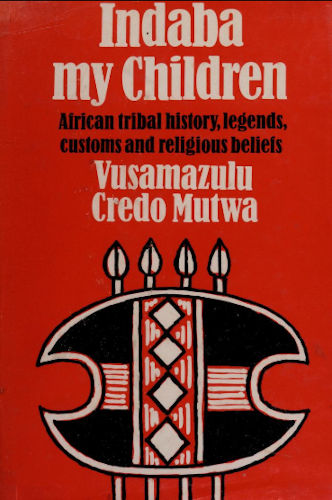 Indaba, My Children (1964)
Indaba, My Children (1964)
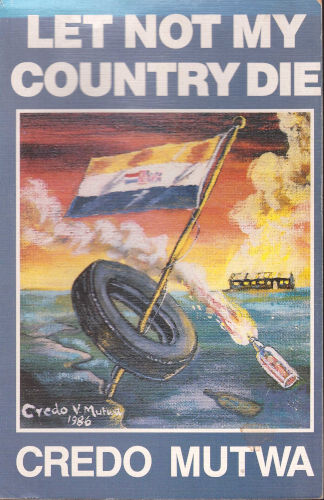 Let Not My Country Die (1986)
Let Not My Country Die (1986)
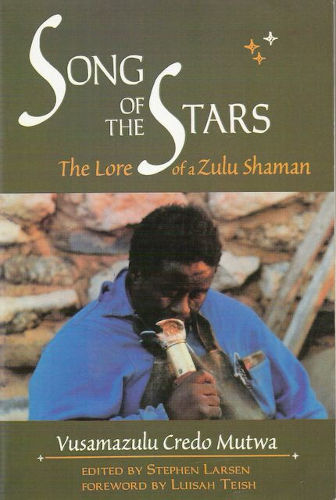 Song of the Stars: Lore of the Zulu Shaman (1996)
Song of the Stars: Lore of the Zulu Shaman (1996)
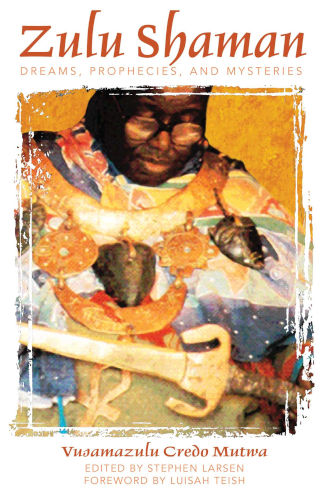 Zulu Shaman: Dreams, Prophesies and Mysteries (2003)
Zulu Shaman: Dreams, Prophesies and Mysteries (2003)
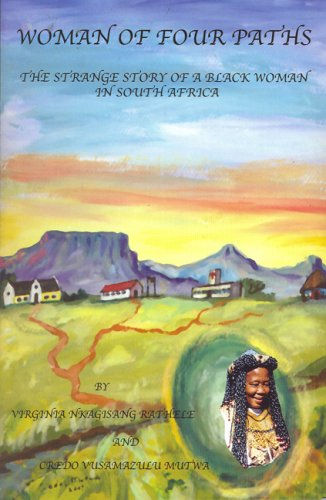 Woman of Four Paths: The Story of a Strange Black Woman in South Africa (2007)
Woman of Four Paths: The Story of a Strange Black Woman in South Africa (2007)
In 2017, Mutwa was honoured with a Lifetime Achievement Award at the South African Literary Awards.
Mutwa died at Kuruman Hospital in the Northern Cape hospital early on Wednesday, 25 March following a period of ill health. At the time of his death, Mutwa was living with his third wife Virginia in Kuruman, where he ran a clinic for people with Aids.